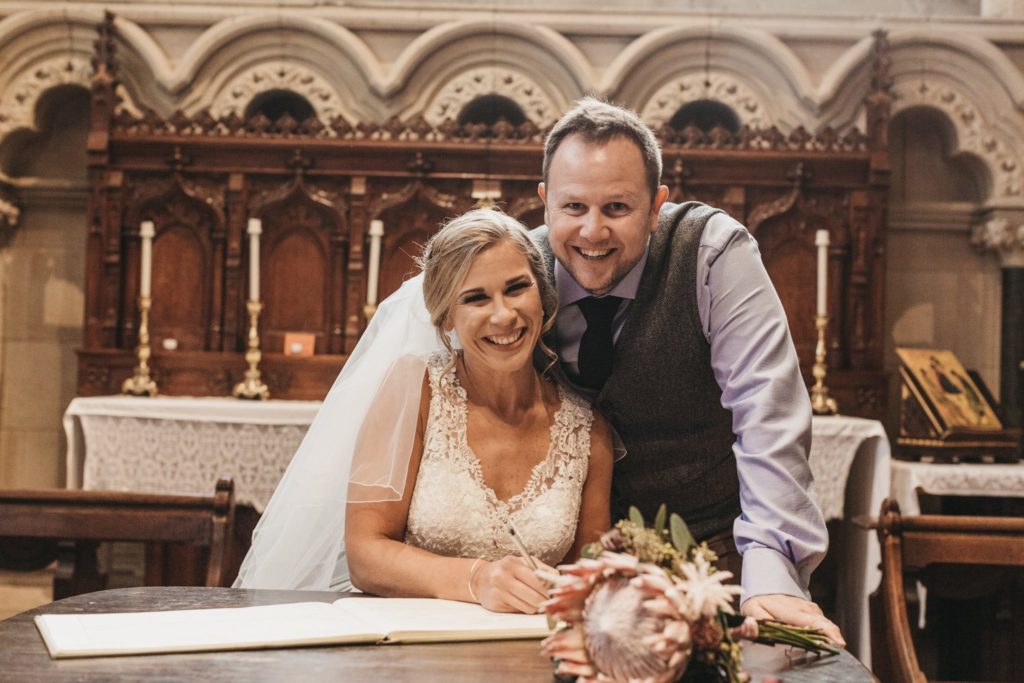When planning your wedding, it is easy to get swept by all the beauty, aesthetic choices, visualisation of decor, or how your breathtaking gown will be swaying as you walk down the aisle. In between all of those moments while you daydream about the iconic “I do”, unfortunately, there are some less amusing technicalities to consider especially when it comes to the Italy wedding legalities. Nothing is complicated when you know how things work, and of course, I will be your guiding hand through the process and introduce you to the essentials to realise your dream wedding. The documentation process is as follows:

Step 1. Give notice of marriage
In order to first begin the process for a legal wedding in Italy, you must first go to your local legal office in the UK and give notice of marriage. Because the legal documentation will be valid for 6 months in Italy concerning UK citizens (3 months for residents of Scotland), the notice has to be given prior and timed accordingly to be valid – in this case no more than 6 months before your wedding day.
Step 2. Certificate of No Impediment (CNI)
After you have given your notice for the required period of 6 months, the next thing on the Italy wedding legalities is receiving the Certificate of No Impediment to Marriage. It will be dated and signed by your local Registrar. I cannot stress this enough but it is essential that your names on this document are exactly the same as your names in the passports. Assuring this is so, you will avoid any unpleasant rejections by the Italian government.
Step 3: The Statutory Declaration
While the Certificate of No Impediment is being made, the third step is to make a Statutory Declaration before a public notary or a solicitor. This declaration is required by the Italian government that gives them additional information about you as a couple. Naturally, this requires a fee, so you can choose where to make this declaration. Usually, solicitors require a lesser fee. But if you are wondering about what this declaration for a legal wedding in Italy is and how to obtain it, I will gladly come to your aid and send it over to your email so you can have it ready in no time! It will be bilingual, so you don’t have to worry about translating it.
Step 4: Sending the documents to the Legislation Office
It is time to legalise the documents, so you have to send them to the Legislation Office for them to get the Hague Apostille. The fee of this may vary due to different periods so it is best to check the prices at the Foreign and Commonwealth Office webpage.
Step 5: Translation of your CNI
The final step of your Italy wedding legalities is translating your Certificate of No Impediment officially but this time it has to be done by a translator who is based in Italy instead of the UK. The translated CNI will be sworn before the Italian courts or Italian Justice of the Peace. The fee will vary on the translator, and there will be an additional for the courier service. In this case, I will help you go through the process by submitting your ready documents and taking care of the correspondence.

Summary of Documentation required for UK citizens
- Certificate of No Impediment (curated and legalised in the UK but translated in Italy)
- Bilingual Statutory Declaration (curated and legalised in the UK)
- Your Passports
- A reminder: The CNI will be valid for 6 months from the date of issuing for English, Welsh, or Northern Irish citizens and 3 months for residents of Scotland.
If you are feeling challenged with understanding the whole process or need a consultation about the Italy wedding legalities, I wholeheartedly urge you to get in touch with me. I will be glad to go through any details you might be interested in. My goal is to make your planning experience feel seamless, so you can safely go back to choosing every detail with a heart full of excitement.





leave a comment